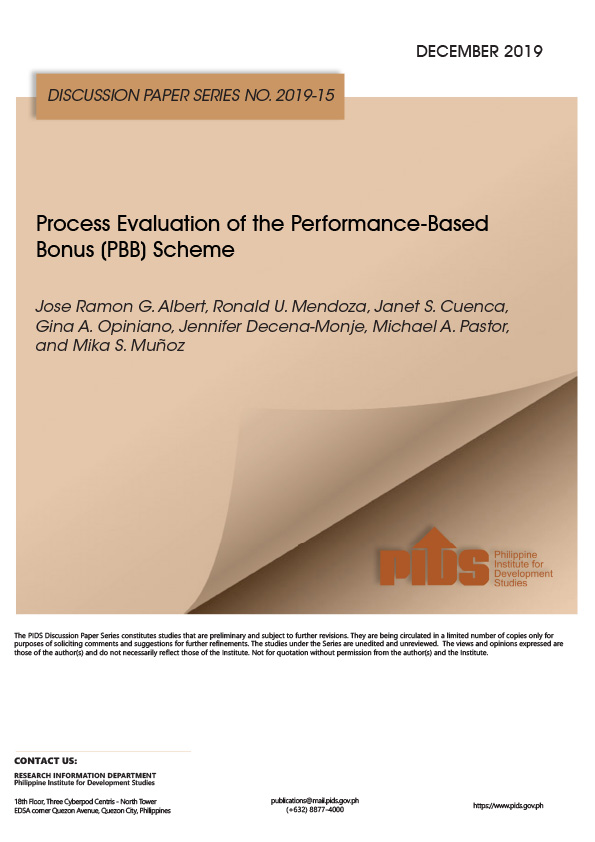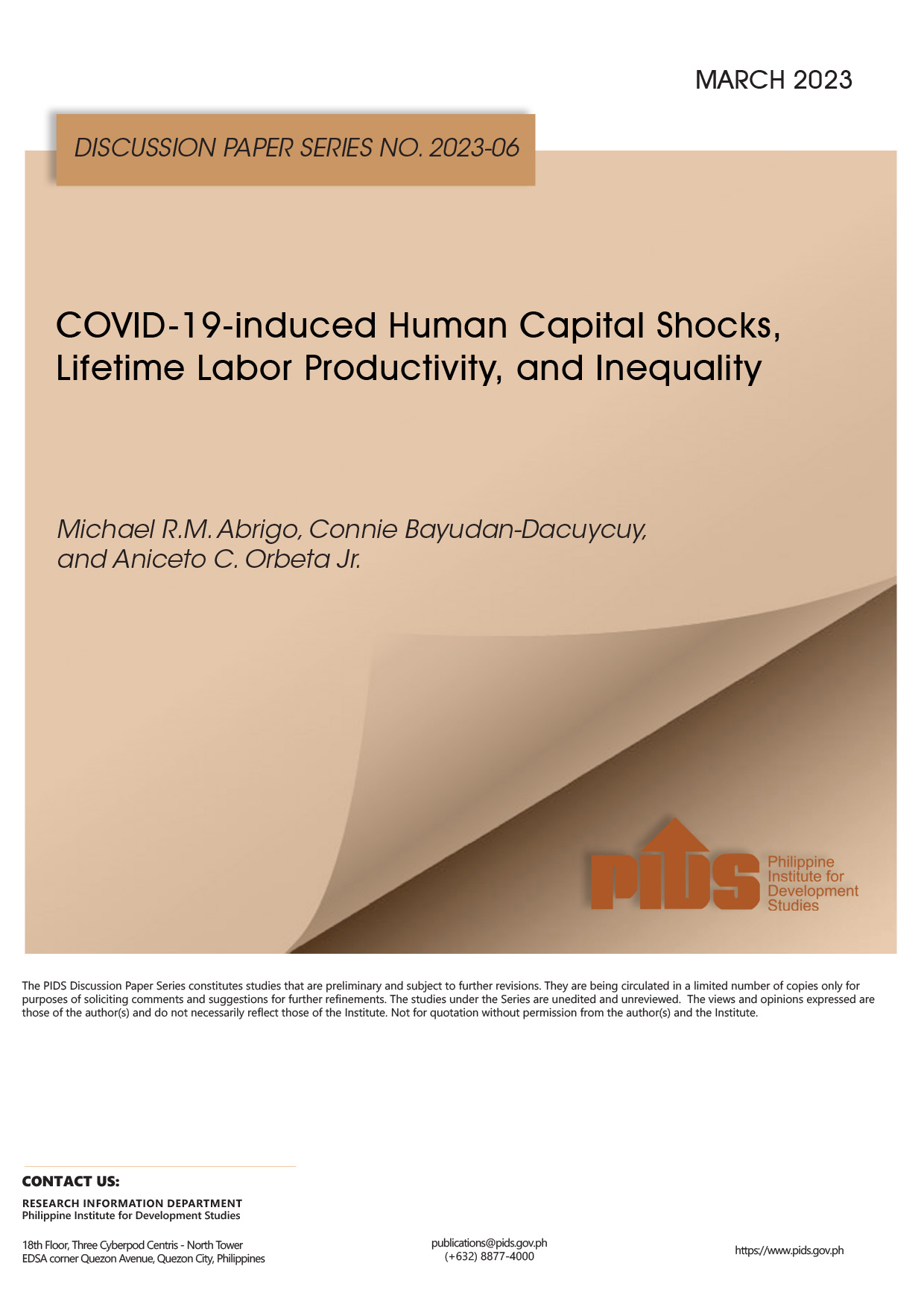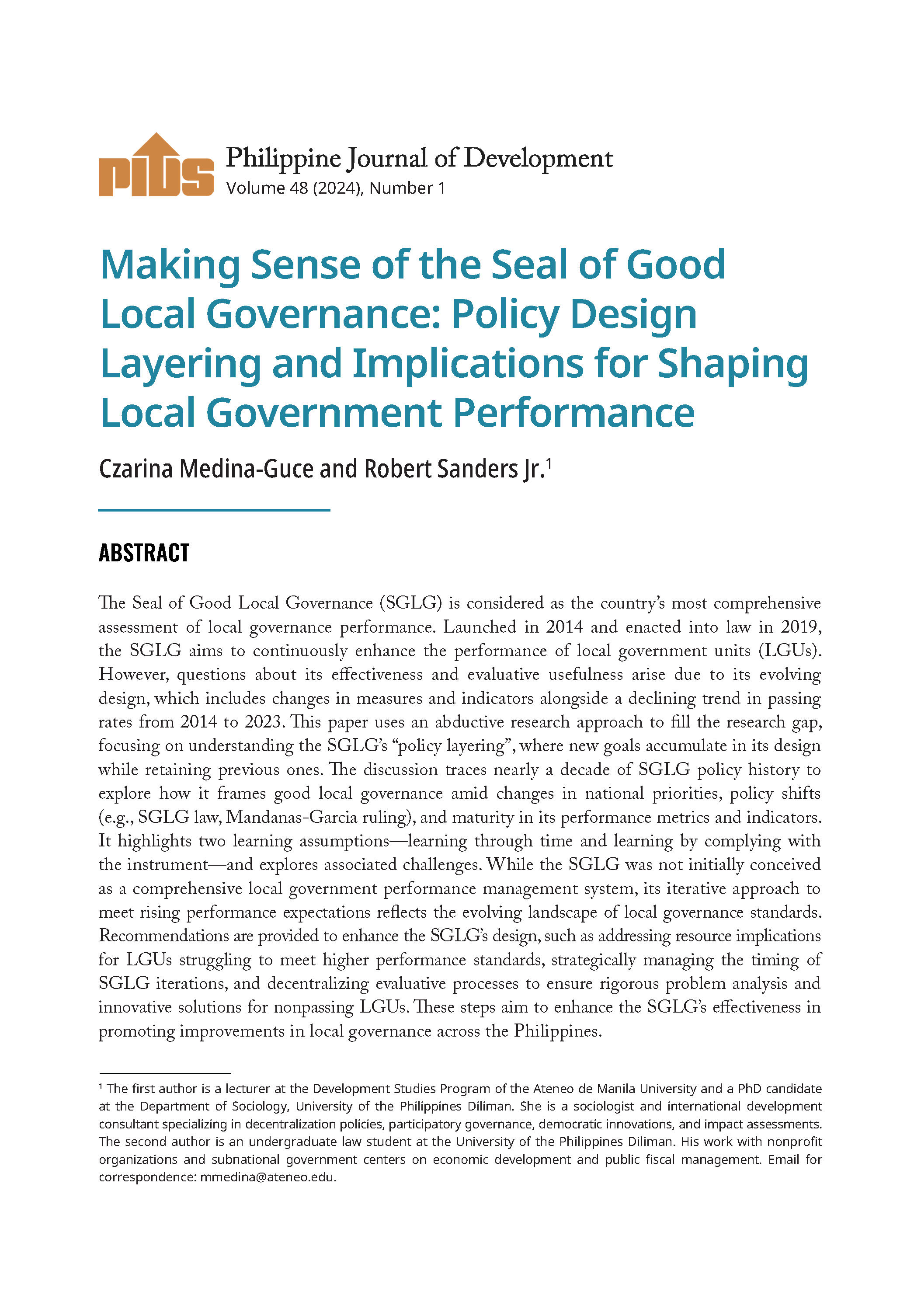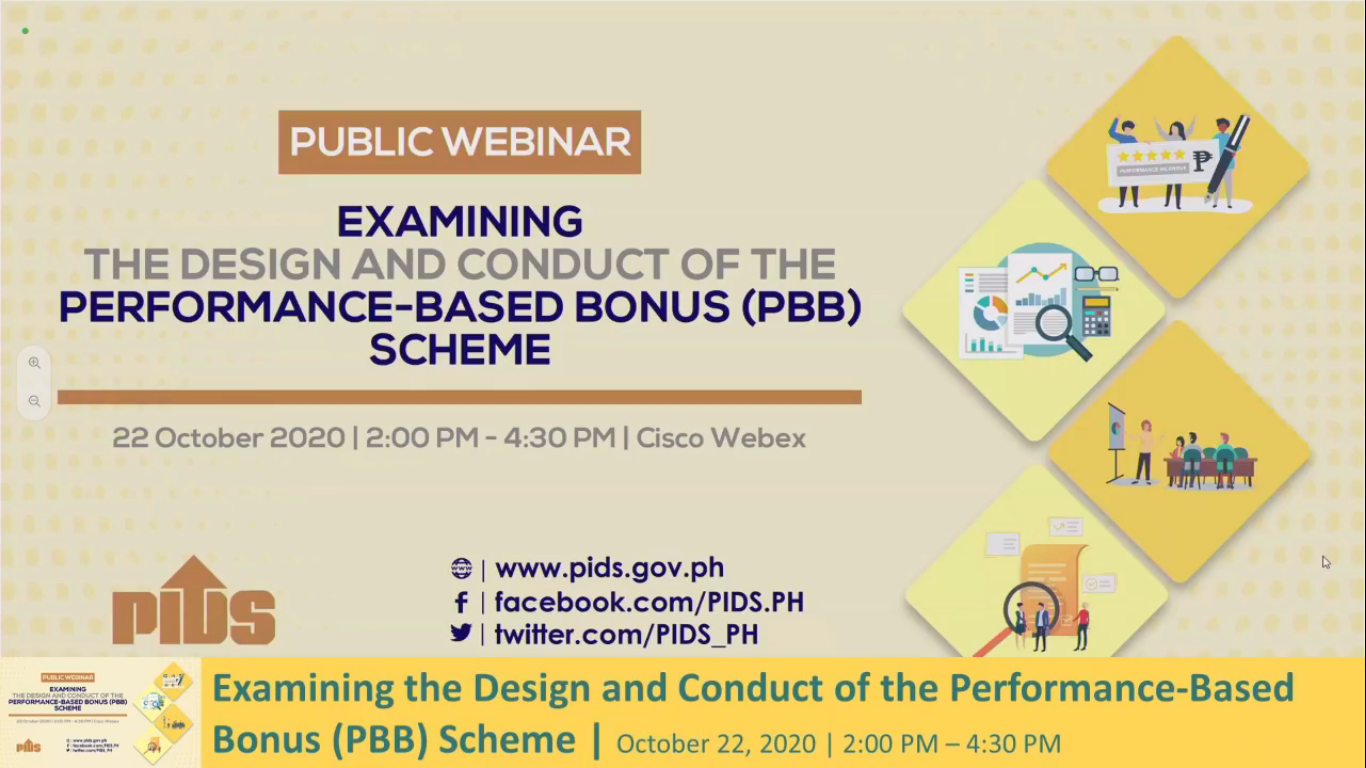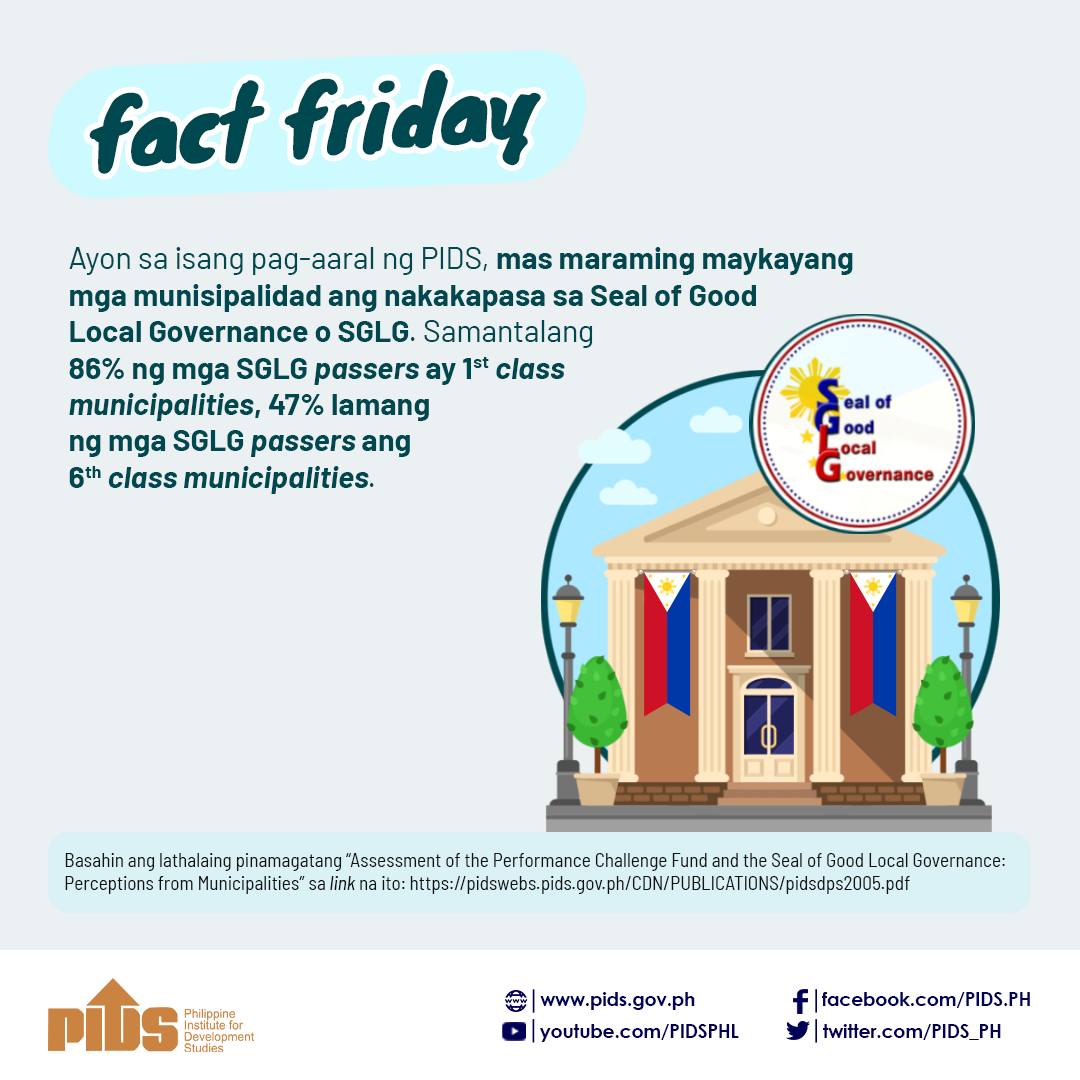Since the adoption of the Performance Based Bonus (PBB) scheme in 2012, its effectiveness--particularly its impact on agencies' reform efforts and on public sector employees' motivation and productivity--have not yet been examined. The Department of Budget and Management (DBM) deems it critical to study the effect of the PBB on government efforts to boost productivity and push reforms, as well as government employees' individual and team-level motivations and productivity. The DBM wishes to determine whether the PBB is achieving its design objectives and, in turn, determine whether it is worth pursuing given its budgetary implications. Prior to an impact evaluation, a process evaluation should be conducted to clarify whether and to what extent the PBB worked as planned. In this regard, this study examines the PBB design and how this design has been executed. The study identifies implementation deficits, taking note of the bottlenecks and challenges encountered by government agencies/units in meeting the conditions to qualify for the PBB. It also presents some data on the possible effects of PBB on at least three levels: a) agency-wide incentive effects, b) team-level collaboration effects; and c) individual staff member incentive effects. This study finds mixed results on these three main channels of the effects of PBB; and it recommends a general review of the main policy objectives. Meanwhile, the study also identifies several concrete reforms that could help sharpen the PBB moving forward.

